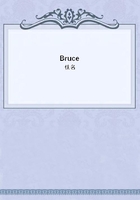
第35章 The Werewolf(1)
When Bruce left the quiet peace of The Place for the hell of the Western Front, it had been stipulated by the Mistress and the Master that if ever he were disabled, he should be shipped back to The Place, at their expense.
It was a stipulation made rather to soothe the Mistress's sorrow at parting from her loved pet than in any hope that it could be fulfilled; for the average life of a courierdog on the battle-front was tragically short. And his fate was more than ordinarily certain. If the boche bullets and shrapnel happened to miss him, there were countless diseases--bred of trench and of hardship and of abominable food--to kill him.
The Red Cross appeal raised countless millions of dollars and brought rescue to innumerable human warriors. But in caring for humans, the generosity of most givers reached its limit; and the Blue Cross--"for the relief of dogs and horses injured in the service of the Allies"--was forced to take what it could get. Yet many a man, and many a body of men, owed life and safety to the heroism of some war-dog, a dog which surely merited special care when its own certain hour of agony struck.
Bruce's warmest overseas friends were to be found in the ranks of the mixed Franco-American regiment, nicknamed the "Here-We-Comes." Right gallantly, in more than one tight place, had Bruce been of use to the "Here-We-Comes." On his official visits to the regiment, he was always received with a joyous welcome that would have turned any head less steady than a thoroughbred collie's.
Bruce enjoyed this treatment. He enjoyed, too, the food-dainties wherewith the "Here-We-Comes" plied him. But to no man in the army would he give the adoring personal loyalty he had left at The Place with the Mistress and the Master. Those two were still his only gods. And he missed them and his sweet life at The Place most bitterly. Yet he was too good a soldier to mope.
For months the "Here-We-Comes" had been quartered in a "quiet"--or only occasionally tumultuous--sector, near Chateau-Thierry. Then the comparative quiet all at once turned to pandemonium.
A lanky and degenerate youth (who before the war had been unlovingly known throughout Europe as the "White Rabbit" and who now was mentioned in dispatches as the "Crown Prince") had succeeded in leading some half-million fellow-Germans into a "pocket" that had lately been merely a salient.
From the three lower sides of the pocket, the Allies ecstatically flung themselves upon their trapped foes in a laudable effort to crush the half-million boches and their rabbit-faced princeling into surrender before the latter could get out of the snare, and to the shelter of the high ground and the reenforcements that lay behind it. The Germans objected most strenuously to this crushing process. And the three beleaguered edges of the pocket became a triple-section of hell.
It was a period when no one's nerves were in any degree normal--least of all the nerves of the eternally hammered Germans. Even the fiercely advancing Franco-Americans, the "Here-We-Comes," had lost the grimly humorous composure that had been theirs, and waxed sullen and ferocious in their eagerness.
Thus it was that Bruce missed his wontedly uproarious welcome as he cantered, at sunset one July day, into a smashed farmstead where his friends, the "Here-We-Comes," were bivouacked for the night. By instinct, the big dog seemed to know where to find the temporary regimental headquarters.
He trotted past a sentry, into an unroofed cattle-shed where the colonel was busily scribbling a detailed report of the work done by the "Here-We-Comes" during that day's drive.
Coming to a halt by the colonel's side, Bruce stood expectantly wagging his plumy tail and waiting for the folded message from division headquarters to be taken off his collar.
Usually, on such visits, the colonel made much of the dog. To-day he merely glanced up abstractedly from his writing, at sight of Bruce's silken head at his side. He unfastened the message, read it, frowned and went on with his report.
Bruce continued to wag his tail and to look up wistfully for the wonted petting and word of commendation. But the colonel had forgotten his existence. So presently the collie wearied of waiting for a caress from a man whose caresses, at best, he did not greatly value. He turned and strolled out of the shed. His message delivered, he knew he was at liberty to amuse himself as he might choose to, until such time as he must carry back to his general a reply to the dispatch he had brought.
From outside came the voices of tired and lounging soldiers. Atraveling kitchen had just been set up near by. From it arose a blend of smells that were mighty tempting to a healthily hungry dog. Thither, at a decorous but expectant pace, Bruce bent his steps.
Top-Sergeant Mahan was gazing with solicitous interest upon the toil of the cooks at the wheeled kitchen. Beside him, sharing his concern in the supper preparations, was Mahan's closest crony, old Sergeant Vivier. The wizened little Frenchman, as a boy, had been in the surrender of Sedan. Nightly, ever since, he had besought the saints to give him, some day, a tiny share in the avenging of that black disgrace.
Mahan and Vivier were the warmest of Bruce's many admirers in the "Here-We-Comes." Ordinarily a dual whoop of joy from them would have greeted his advent. This afternoon they merely chirped abstractedly at him, and Mahan patted him carelessly on the head before returning to the inspection of the cooking food.
Since an hour before dawn, both men had been in hot action. The command for the "Here-We-Comes" to turn aside and bivouac for the night had been a sharp disappointment to them, as well as to every unwounded man in the regiment.